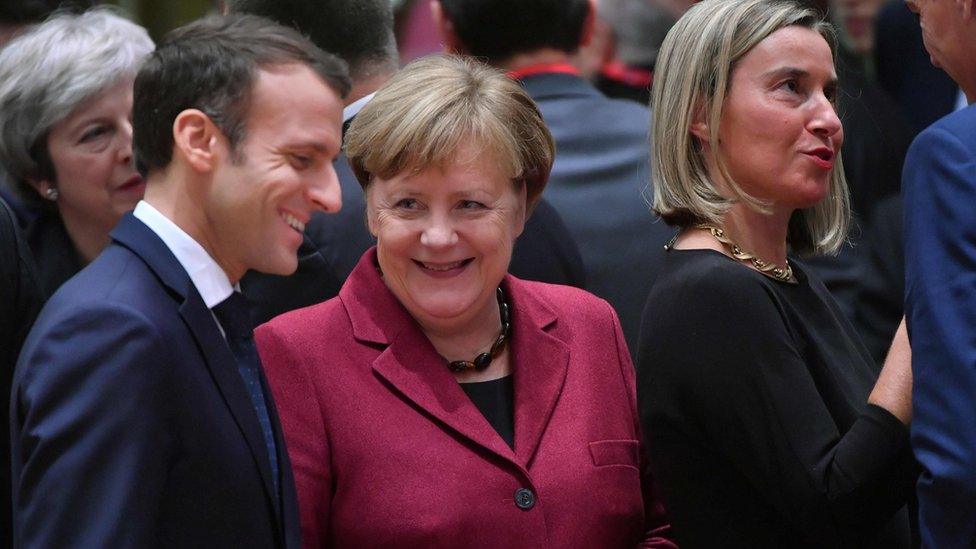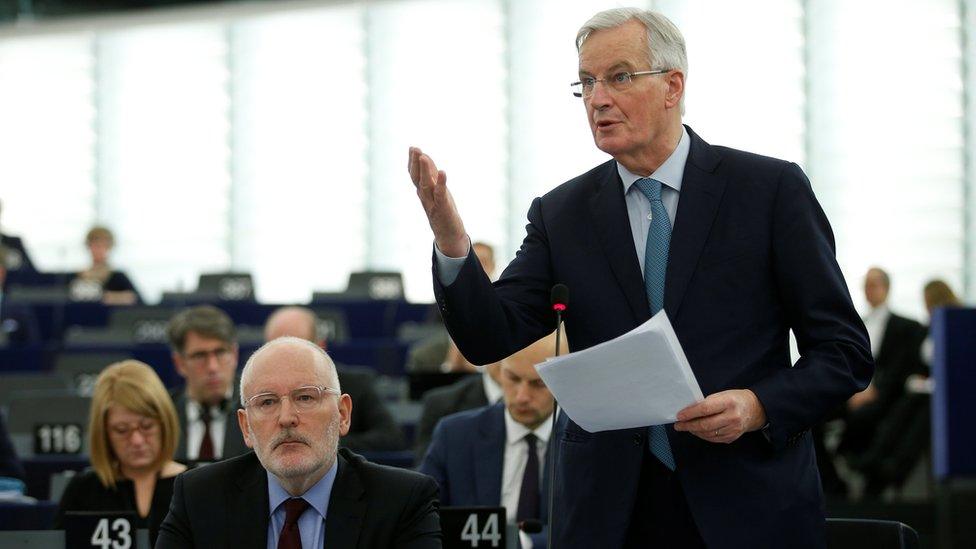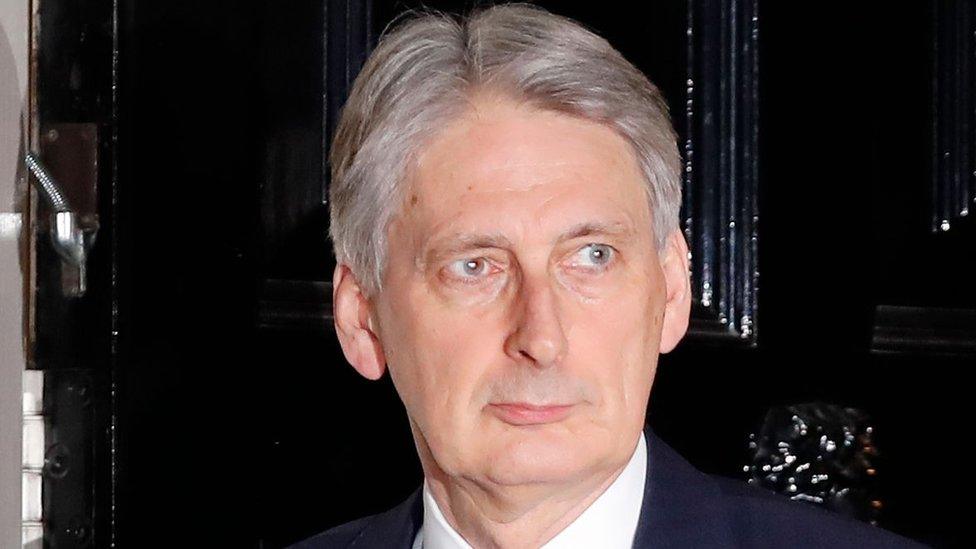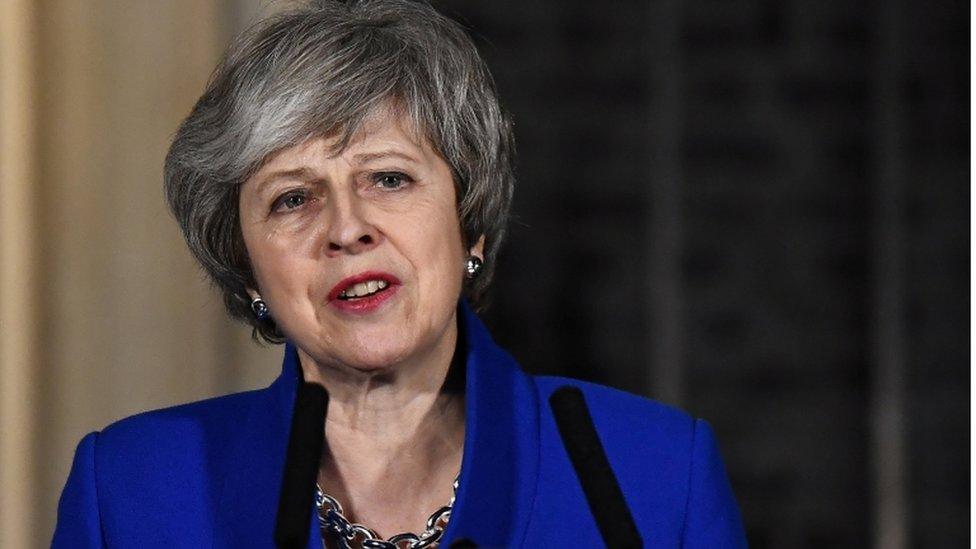Brexit: Is Brussels ready to give UK more time?
- Published

Publicly, the EU27 have told Theresa May the clock is ticking and that preparations for a no-deal Brexit are intensifying. Privately, the talk is all about extending the Article 50 period and defusing that time bomb due to go off on 29 March.
Brexiteers have long told us that the EU27 have much to fear from no deal, and in this they are right.
But where they're wrong - or seem to be from all the contacts one has in this city - is in their presumption that this fear of an exit without a deal would lead other EU members to compromise their principles or suddenly shift their own red lines.
Of this there is no sign. Instead the key European players - France and Germany - seem to be preparing fellow members for an extension to Article 50 in order to give the UK more time to change its mind.
As a senior German politician said to me just after the referendum result in 2016 - and referring then to the UK's invocation of Article 50: "Why press on the accelerator when you are driving towards a cliff edge?"
Now, what we are seeing is an increasingly frank discussion during background briefings from Commission officials of options designed to buy time.
Michel Barnier, speaking to the European Parliament on Wednesday, suggested the withdrawal negotiations themselves might be reopened if the UK shifted its red lines.
But at the same time as the EU's chief negotiator dangles this proposition, his colleagues at the commission are dealing with a more immediate question: the very real prospect of the UK running out of time as the prime minister struggles to build parliamentary consensus.

Chief Brexit negotiator Michel Barnier addresses the European Parliament
In this sense the equation seems to have changed during the past week. People in the EU institutions had been sticking to the line that there would be no extension to the Article 50 period unless there was a meaningful development at Westminster - for example towards a second referendum, or indeed, as Mr Barnier reiterated yesterday, a softer Brexit.
Now, shocked by the margin of Mrs May's defeat on Tuesday, the equation appears to have altered.
Even those who believe the UK might be heading for a second referendum (and this is the area where Brussels harbours its own element of wishful thinkers) understand that such a vote would have to posit a choice between a deal that had been passed by Parliament and remaining in the EU.
Clearly Mrs May is still some distance from having a deal that will get through Westminster, even if she is set to attempt this feat again on 29 January.
Shifting the deadline
Faced with weeks or even months of parliamentary wrangling, there is active discussion now among the 27 member states about whether to allow more time, what token of 'progress' (for example the UK stepping back from the no deal option) might be sufficient to justify this extension, and how long it will be for.
For some days the constitutional experts have been publicly debating the possibility of shifting the Article 50 deadline until early July.
After that - once the new European Parliament arrives, a new commission takes shape and new budgetary cycle begins - it all becomes more complicated.
But even this option is under discussion now, with reports that the French and Germans are considering extending the Article 50 deadline by as much as a year.
The UK might then have to elect new MEPs in May and make additional budgetary contributions in order to keep its membership going.
Leavers would bridle at such steps, of course, but this gives a flavour of the debate now underway.
You can watch Newsnight on BBC 2 weekdays 22:30 or on iPlayer. Subscribe to the programme on YouTube, external or follow them on Twitter, external.
- Published16 January 2019

- Published16 January 2019

- Published17 January 2019
